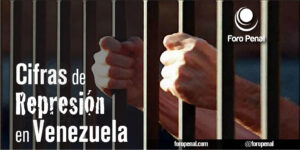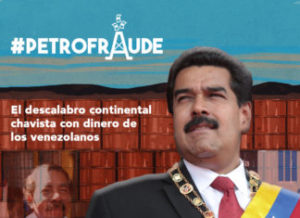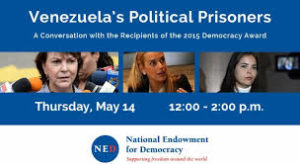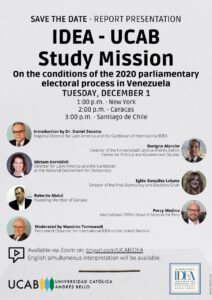This week, Venezuelans are being asked to go to the polls not once but twice, in two bizarrely conflicting electoral events. On Monday, December 7, the government of embattled president Nicolas Maduro celebrated victory in parliamentary elections, largely rejected on the international stage, CNN reports:
Now, the opposition is holding a competing referendum to gather support and reject the outcome of the weekend’s vote. It’s the latest split-screen episode in a years-long saga of Venezuela’s rival presidencies — and some observers fear it may also be one of the last.
But two-time presidential candidate Henrique Capriles, a critic of both Maduro and Guaidó, said the opposition doesn’t have a plan, the Post reports.
“The response of the democratic sectors cannot be the monitoring of a failure that we knew would occur or calls for mobilization without tangible solutions,” he tweeted. “After all these failures, it will be necessary to rethink real alternatives and open paths hand-in-hand with all sectors.”
 The European Union said on Monday it did not consider Venezuela’s parliamentary election on Sunday was free or fair and rejected the result, calling on Maduro to chart a path towards national reconciliation, Reuters adds. “The results cannot be recognized by the European Union,” the EU’s top diplomat, Josep Borrell, told a news conference.
The European Union said on Monday it did not consider Venezuela’s parliamentary election on Sunday was free or fair and rejected the result, calling on Maduro to chart a path towards national reconciliation, Reuters adds. “The results cannot be recognized by the European Union,” the EU’s top diplomat, Josep Borrell, told a news conference.
Critics are calling Sunday’s race a theater piece meant to lend a veneer of legitimacy to Maduro, who has spent the last seven years jailing opponents, tearing apart opposition parties and using extrajudicial killings to stifle dissent, the Times reports. Ninety-two percent of respondents to an October poll by the firm Datanalisis had a negative view of the country’s situation, the highest number since 2011.
In truth, Maduro had long ago stripped the assembly of power and banned key figures from opposition parties, draining the political process of any authenticity, Bloomberg adds:
Guaido presides over little more than a symbolic claim to the presidency run out of a bedroom in his Caracas apartment and supported with declining enthusiasm by dozens of countries, including the U.S. ….The election, which drew some 31% participation, was part of Maduro’s drive to push aside genuine challenge to his rule while leaving room for loyal opposition parties to maintain the illusion of democratic politics.

Connectas
“It doesn’t matter if the turnout was very low, the election only seeks to ratify Maduro’s government by force,” said political scientist Angel Alvarez.
Guaidó was already struggling to maintain momentum for his campaign to oust Maduro after almost two years that have yielded few concrete results in Venezuela and amid the COVID-19 pandemic which has made it harder to organize protests. Losing official control of the assembly has left his claim to be president on even shakier ground and sent Venezuela sliding closer to outright dictatorship, TIME adds.
“I think this is the beginning of the end of Guaidó’s interim presidency and certainly an inflection point for his leadership of the opposition,” says Risa Grais-Targow, Venezuela director at Eurasia Group, a political risk consultancy. “Maduro’s grip on the system is now total.”
Other commentators echoed pessimistic prognoses on prospects for the democratic opposition.

National Endowment for Democracy
“By retaking the national legislature, they are delivering a very severe blow to the opposition,” Journal of Democracy contributor Javier Corrales told the Wall Street Journal:
Mr. Guaidó’s political standing abroad could erode because he has no actual power inside Venezuela. Many countries that joined the U.S. to recognize Mr. Guaidó’s claim to the presidency could reassess their support because the opposition is unlikely to unseat Mr. Maduro anytime soon. A hoped-for mutiny by the military never happened, and now all but a few opposition leaders live abroad.
“They can’t find a way to de-recognize [Guaidó] without handing a victory to Maduro,” said Phil Gunson, a Caracas-based political analyst with the International Crisis Group.
 Despite Chavismo’s systematic efforts to destroy Venezuela’s democracy, there remain “significant sectors of the population, organizations and political parties that continue to raise values fundamentals such as freedom and human dignity,” says Miriam Kornblith, Senior Director for Latin America and the Caribbean at the National Endowment for Democracy (NED).
Despite Chavismo’s systematic efforts to destroy Venezuela’s democracy, there remain “significant sectors of the population, organizations and political parties that continue to raise values fundamentals such as freedom and human dignity,” says Miriam Kornblith, Senior Director for Latin America and the Caribbean at the National Endowment for Democracy (NED).
“I believe that on the one hand it has to do with those 40 years prior to Chavismo, which with their defects and imperfections centered and founded democracy as a fundamental principle,” she recently told La Gran Aldea.
“On the other hand, I have seen that in terrible situations, such as those that exist in North Korea or Cuba. There are groups that never stop fighting and that happens because in the human being there is a longing for respect , pluralism and self-determination,” adds Kornblith, participated in a discussion of a IDEA-UCAB report on the election’s lack of legitimacy and credibility here and on France24 below.







